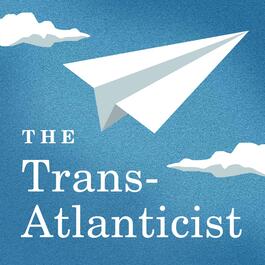
The Trans-Atlanticist
Andrew Sola explores the past, present, and future of relations between Europe and the United States with scholars, artists, authors, politicians, journalists, and business leaders. Based at the Amerikazentrum in Hamburg, the Trans-Atlanticist provides you with insights from the thought leaders who are shaping the trans-Atlantic relationship every single day.
Show episodes
***This episode was recorded live on 19 November 2025.*** This special episode explores the life and work of Mark Twain, one of the most iconic figures in American literature. We discuss Twain’s career, his main interests, and his enduring impact on U.S. cultural history. A particular focus is his travels through Europ

Money and the Declaration of Independence: How Revolutionary Financial Ideas Won the Revolutionary War
"And for the support of this Declaration, with a firm reliance on the protection of divine Providence, we mutually pledge to each other our Lives, OUR FORTUNES, and our sacred Honor." Why did the signers of the Declaration of Independence have to pledge their fortunes (their money) to the revolutionary cause? How did u
In this episode, we explore the influence of Wales and Welsh immigrants on the Declaration of Independence with two expert guests from the University of Cardiff, Dr. Marion Loeffler and Dr. Huw Williams. Topics include: -the importance of preserving and expanding Welsh language and identity in the present -an explorati
"Irish men and Irish women, in the name of God and of the dead generations from which she receives her old tradition of nationhood, Ireland through us summons her children to her flag and strikes for her freedom. She now seizes that moment and supported by her exiled children in America and by gallant allies in Europe,

Creating ONE PEOPLE: Whig Legal Theory Plus Comparisons with Ireland and Spanish America
"When in the Course of human events, it becomes necessary for ONE PEOPLE to dissolve the political bands which have connected them with another..." "Whenever any Form of Government becomes destructive of these ends, it is the Right of THE PEOPLE to alter or to abolish it..." In this episode, we explore the creation of
This episode explores the complexity of Florida's colonial history, its relationship to African-Americans, and its importance during the War of Independence. Our expert guest is Prof. Jane Landers (Vanderbilt University), who is also the Director of the Slave Societies Digital Archive. Topics include: -The importance o